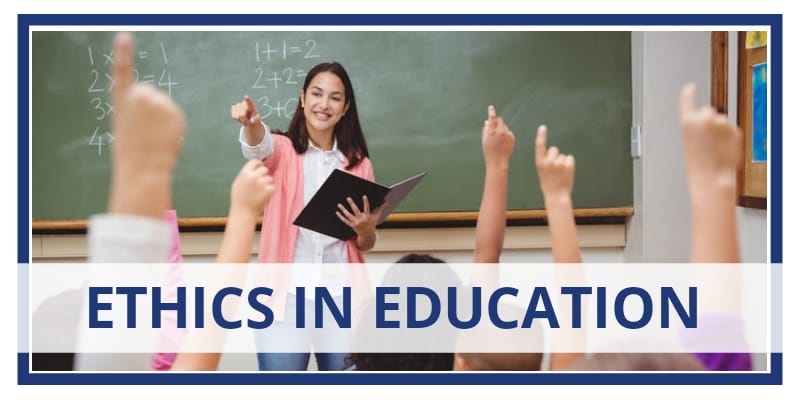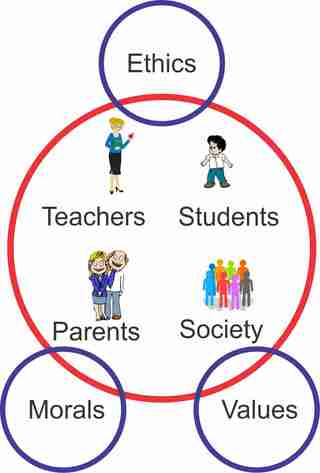Introduction
Issue in Education System-
Ancient education of Bharat stood on high ethics of flourishing and enriching guru sishya based gurukul system where Guru (teacher or Principal) stood for top morals and values and sishya (Students) or disciples follow those values in high respect and solidarity.
The Education of Bharat was seen in such high esteem that students from all corners of the world aspired to come here for knowledge and values.
What went wrong in Bharat?
With the gradual invasion of Arabs, Turks, and British Bharat began to see various changes in the social, political, religious, and cultural spectrum, and education once flourishing was under gradual changes and pressures.
The changed model of education especially of Macaulay education had changed the fundamentals of ancient education. The anglicized sort of education had apparently some advantages but completely lacked on the ethical front.
What today we see of ethical issues is probably the side effects of the latest education model implemented in India.

Constituents of the Education System in Bharat
The school education system in India has three main constituents- Students, teachers, and parents (have excluded the role of faculty management as teachers are more or less the mouthpiece of faculty administration).
Starting with ethical problems
In order to know the problems of ethics, morals, and values it’s necessary to define each of them.
Values represent rules set by individuals to require a personal decision in judging what’s right or wrong or bad. Values tend to direct individuals to settle on the important and leave the smaller matters.
Morals are thick and broader sets of rules which helps individual to gauge other nearly as good or bad which we call instinct generally.
Ethics are predefined sets of rules that outline a specific group of individuals like medicals, journalism, etc. More specifically ethics are self-imposed rather than judged or imposed on others.
Assessment
While assessing the position of every constituent of faculty education with reference to their readiness to face ethical challenges we discover that teachers are most susceptible to face the tough challenges.
Dilemmas of teaching fraternity ( under issue in education )
Teachers are expected to uphold high values and embrace ethics of teaching but they face most dilemmas like whether to assist students beyond the classroom or if yes then to what extent?
Just in case the teacher is more cooperative, dedicated, and hospitable to teach his or her students beyond class hours then repeated requests for the same query make him or her re-evaluate. The second dilemma is whether the teacher-student relationship as friendly or formal like Guru- Sishya parampara (culture). Even becoming too friendly may create problems from a broader perspective.
Should teachers resort to personal tuition for quick money or be strict in giving tuition to students not from their school? Even the strict behavior of teachers attracts sharp reactions from parents.
Should a teacher let a failing 9th-grade student matriculate knowing she or he’s held back or drop out?
Should a Principal approve of inflated grades and accept admission of scholars not supported merits?
There are numerous dilemmas faced by teachers from time to time and it completely depends upon the person holding values or morals.
Student’s dilemma – issue in education
The story of our second constituent – The student is not any different. Firstly he/she faces the dilemma of whom to follow – the values inculcated by parents and family or values taught by teachers at educational institutions. For instance, Students are taught in class to worship parents and always obey their wishes or orders even mother’s and father’s days are organized in class to develop such values in students. However, the scholar sees a really different ideology practiced in reality ground. His parents have left his grandmother or father to live in an old age home. What should students do here and whom to follow? The conflict is unavoidable.
The conflict of values, ideology, and thought creates a cloud of confusion in the young mind. Teachers and parents together may play important roles in avoiding or resolving such confusion in young minds.
Parents are at the receiving end of such a conflict of ethics. Should parents give longer to their wards to develop a sense of high values and morals and help them understand the moral values taught in school?
There are non-stopping moral issues from either side of education but one thing is for certain if all constituents understand their roles and play them responsibly, future conflicts of morals values, and ethics be avoided permanently by scholars and society at large.
To deal with ethical issues in education The International Organization of Education Charter popularly known as CCLP Worldwide brought out a set of the charter for education. The said charter is today known as Education Charter International sometimes interchangeable with Universal Education Charter. The said charter is written to unmask and resolve the issues relating to education at the grassroots level.
CCLP Worldwide is a global Civil Society having consultative status with the United Nations ECOSOC and institutional membership with UNESCO NEQMAP and UN Academic Impact.
Readers may read similar articles as listed below
Check out more of similar articles at newsonline 24
Discover more from News 24 Media
Subscribe to get the latest posts sent to your email.



[…] Issue in education system Happy School is the vehicle of creative thinking without fear of mistakes […]
[…] Issue in education system […]
[…] Issue in education system […]